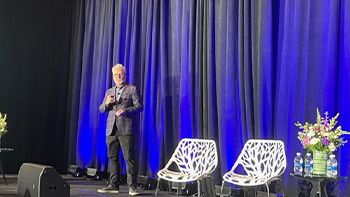
- Pharmaceutical Commerce - July/August 2011
Global Logistics Providers Offer Real-time Monitoring of Drug Shipments, Worldwide
Satellite and cellular technologies, combined with advanced electronic sensors are creating new options for pharma shippers
The ability to monitor a bulk-freight shipment in transit, using communications technologies like satellite telecommunications or the Global Positioning System (GPS) has been in existence for several years. Now, this technology is being introduced to the pharmaceutical industry as a way to upgrade services, especially for temperature-controlled (cold chain) shipments. At the same time, the pharma industry is becoming more globalized, both in terms of destinations for temperature-sensitive finished products, and for bulk intermediates that require special handling. All this is occurring at a time when the industry is considering broader use of more transportation modes, particularly ocean container freight.
Underpinning the logistics requirements for life sciences companies, are the business drivers for safe, secure but economical transportation. As drug shipments move into more challenging parts of the world, such as the interiors of Africa, South America or parts of Asia, ensuring the integrity of the shipment becomes a greater burden. Insurers, who have historically been reluctant to handle ocean transport of high-value products, are looking for alternatives that can open up that business for them.
Satellites on call
All these trends come together with the introduction of various kinds of satellite- or cellular-based communications devices that can monitor the condition of a container or shipment, then transmit near-real-time data to the transporter (or cargo owner) and allow intervention when necessary to ensure that a shipment is properly conveyed and delivered. Some of these technologies have been in the works for nearly a decade—and have been deployed in highly specialized shipments of various kinds—but now the technologies are becoming affordable and reliable for higher-end pharma shipments.
One leading example of this trend is DB Schenker, which, together with a global transportation security firm, Kirsen Global Security (Berlin and Berkeley, CA), offers the SmartBox service. The service comprises a monitoring/communications device (which is obtained from Kirsen) with an online monitoring service managed by Kirsen and DB Schenker. “Pharma shippers are usually concerned with time and temperature for cold chain shipments,” notes Bob Gahan, global sales VP for healthcare at DB Schenker. “But from an electronics perspective, it’s merely a matter of including the right sensors in the device. These sensors can monitor vibration, pressure, the presence of radioactivity, and a variety of other conditions. It’s almost a mix-and-match process.”
Kirsen and DB Schenker have business relationships with several of the communications companies that operate worldwide, so communications can be continuous across wide swaths of the globe, such as a land route across Asia into Europe, or across oceans. Exceptions include North Korea and some other regions that don’t themselves have cooperative agreements with communications companies. A relatively more recent development in global mobile communications, already in use worldwide, is the Global Packet Radio Service (GPRS), which blends cellular and Internet protocols and allows for easier, more reliable data transmission.
credit: Kirsen
Going intermodal
The technology also takes advantage of the intermodal nature of much shipping today. A container can go from a truck at a manufacturer to a port, thence to an ocean-borne freighter, and back to trucks or aircraft at the next port. The SmartBox mounted on the container provides continuous coverage. Depending on the level of service contracted for, the shipment can be monitored periodically, or step-by-step. Data are collected for providing necessary documentation to insurers, homeland security officers or health regulators.
Christian Bogatu, managing director at Kirsen Global Security, notes that besides having a beneficial effect on insurance rates, use of global security systems allow for consolidating multiple shipments in single containers (as opposed to breaking them up into multiple containers, as a risk-management procedure); allow for expedited customs clearance by the Transportation Security Administration or other regulatory bodies (because the integrity of the container can be verified), and, depending on transportation mode, such as switching between air and ocean freight, provide credit for a lower carbon footprint and a higher degree of “green” eco-friendliness.
Pricing for services like these vary considerably. Many vendors will allow for an à la carte arrangement, where the 3PL or shipper contracts for, perhaps, the real-time transmission, but prefers to monitor shipments at their own base rather than the security service’s. The ability to send back-up vehicles, maintenance personnel or drivers is another variable. Other variables are the number of alarm states to be monitored (temperature, pressure, open-door, etc.)
It remains to be seen whether these global wireless technologies will create new transportation practices by the life sciences industry; historically, it tends not to be an early adopter of advanced transportation technologies. But, in however long it takes pharma manufacturers to get comfortable with the systems, the major logistics providers will be advancing the technology and expanding their breadth of experience with them. PC
Articles in this issue
about 14 years ago
Pharma IT is going to the cloudsover 14 years ago
Book Reviewover 14 years ago
Express Scripts Tackles Medication Adherence With SAS Analyticsover 14 years ago
New Labeling Laws Encouraging Innovative Ways to Update Rx Drug Infoover 14 years ago
Cardinal Health Opens Collaboration Center for Radiopharmaceuticalsover 14 years ago
FDA: Pathway to Global Product Safety and QualityNewsletter
Stay ahead in the life sciences industry with Pharmaceutical Commerce, the latest news, trends, and strategies in drug distribution, commercialization, and market access.



